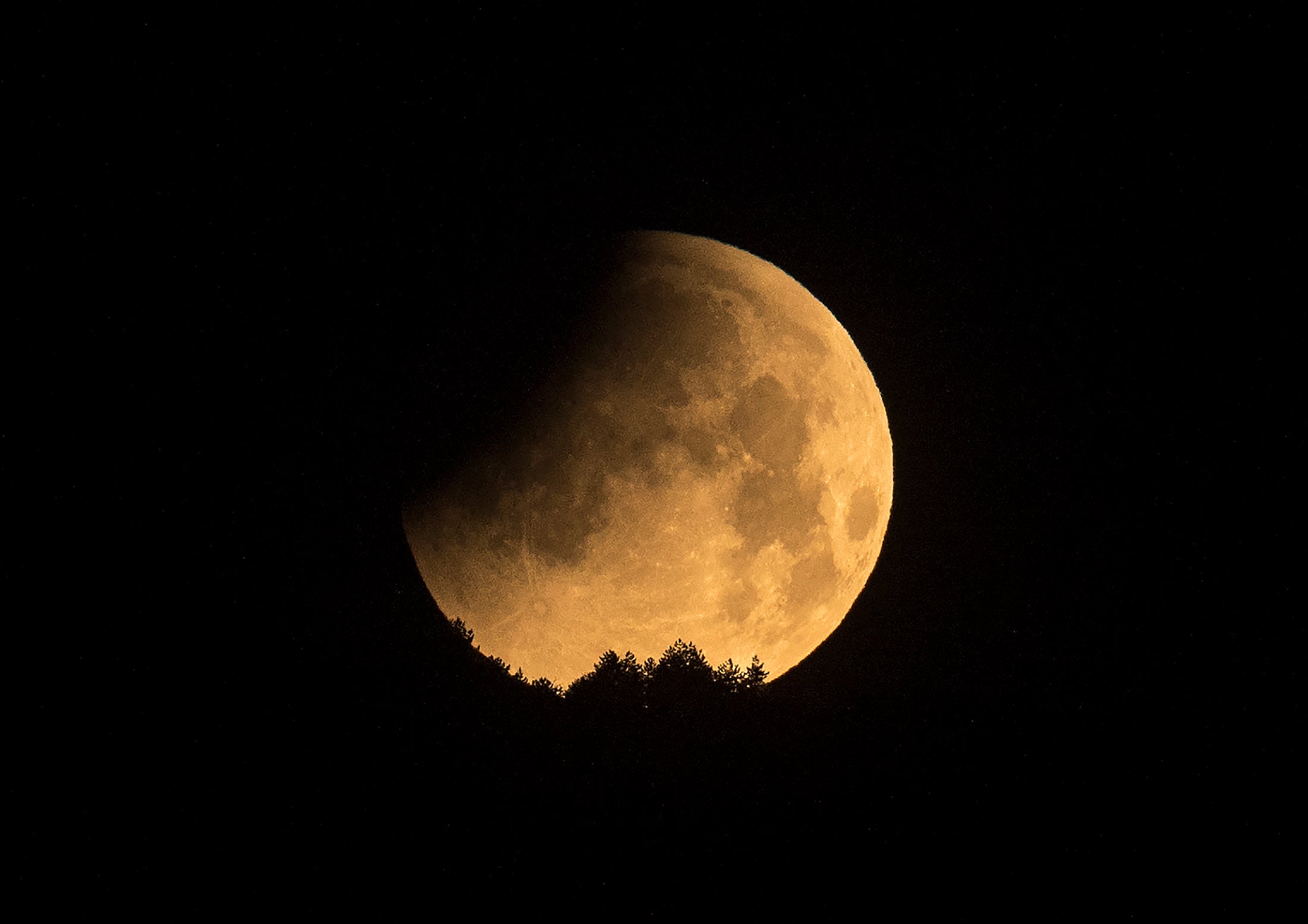Moon spacecraft left in dark under super flower blood lunar eclipse
This is not the first time Nasa’s LRO has experienced a lunar eclipse

Two space vehicles on the Moon belonging to the US and China have been left in the dark due to the Super Flower Blood Moon lunar eclipse.
Nasa’s Lunar Reconnaissance Orbiter (LRO) and the Yutu-2 rover, both solar powered, were rendered inoperable during the eclipse.
As the sunlit half of the moon was shrouded in darkness due to the satellite entering the Earth’s shadow, the LRO could not charge its batteries for the duration of the 90-minute eclipse.
The spacecraft, however, are expected to resume operations once they come in contact with sunlight again.
This is not the first time the LRO has experienced a lunar eclipse.
The orbiter, which is powered by solar arrays, is specifically designed to get through an eclipse as long as the Nasa team behind it follows its plan properly.
The orbiter has experienced 11 total lunar eclipses. The Nasa team managing the rover was prepared to power down instruments aboard the spacecraft to conserve energy.
“When LRO goes through long eclipses, any drain on our battery is not ideal, so we turn off the instruments and wait until we can completely recharge the battery before turning the instruments back on,” Noah Petro, LRO Project Scientist, told Space.com.
Spacecraft and their instruments on the Moon can get really cold under the Earth’s shadow during a lunar eclipse so scientists warm them up earlier.
They also adjust spacecraft orbit to minimise the time spent under darkness with a series of controlled maneuveurs.
The orbiter will likely have to repeat these sets of procedures and hibernate once more during the next total lunar eclipse that will occur on 8 November 2022.
The LRO headed up to the moon on 18 June 2009 for a mission that was originally scheduled to last for only two years, but is still operating along with its onboard instruments still collecting data.
The orbiter is helping Nasa determine safe landing sites for future missions, locate potential resources on the Moon and to characterise its radiation environment.
In the case of China’s Yutu-2, experts said the rover will be powered down as is does on lunar nights which last for about 14.5 days on the Moon.
Join our commenting forum
Join thought-provoking conversations, follow other Independent readers and see their replies
Comments
Bookmark popover
Removed from bookmarks